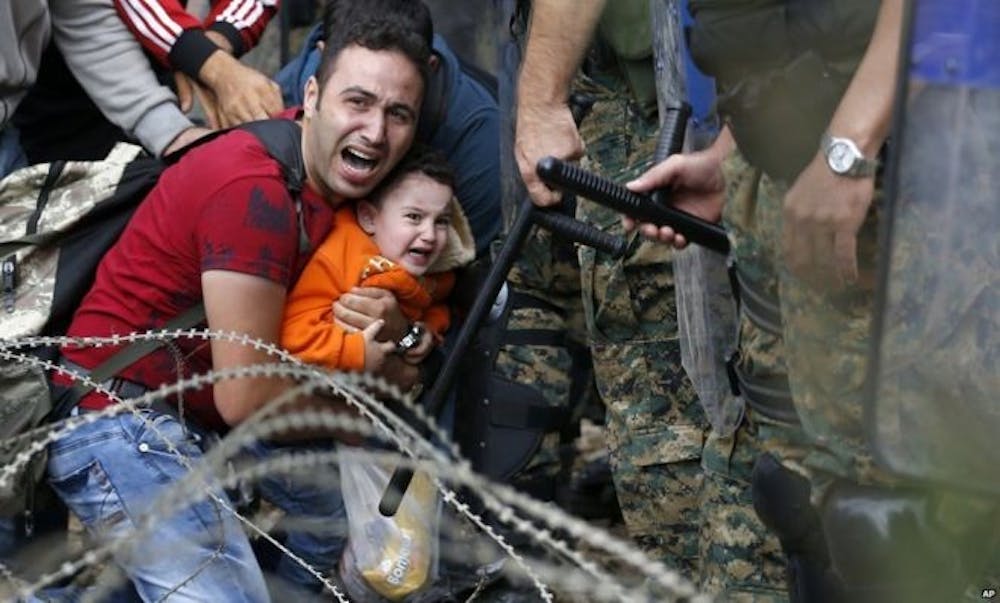By Tom Gbean | Echo
Last year, President Barack Obama issued an executive order to help accommodate the influx of illegal immigrants in the U.S. The Immigration Accountability Executive Order caused a controversy on Capitol Hill because it provided asylum for 300,000 illegal immigrants already in the U.S. Europe is facing similar decisions as the leaders of the European Union (EU) figure out how to handle the thousands of immigrants fleeing from war and persecution in the Middle East.
While countries such as France and Germany welcome refugees, other countries such as Hungary and Denmark are more reluctant to open their borders to those seeking sanctuary.
CNN reports that Denmark has gone as far as paying for ads written in Arabic to inform immigrants of its tightened sanctions on immigration policies such as reduced social benefits. These ads will be published in four Lebanese newspapers and they are meant to discourage migrants from taking refuge in the country.
Prime Minister of Hungary, Viktor Orban, also has strong views against immigrants coming to his country. Orban suggested building a razor-wire fence along the border of Hungary in attempt to keep out immigrants.
At a press conference in Brussels, Belgium, the Economist reported Orban said that "without a robust defense of its external border . . . Europe's internal passport-free Schengen zone would buckle under the pressure of illicit migration."
Orban also attacked the EU's plan to distribute immigrants across Europe to help ease the economic and social burdens of an overabundance of immigrants in a single country.
Amidst the rising casualty and hatred from anti-refugee protesters in Austria and Hungary, the European commission has put together a strategy that will address the issue. The plan will determine the the amount of immigrants each country will receive based on objective and quantifiable criteria such as the size of the population, the GDP, the average number of past asylum applications, and the unemployment rate.
The plan also includes clauses that concern permanent relocation and the specification of safe countries of origins. Safe countries of origin are countries that are part of an international human rights treaty, and have fulfilled the "Copenhagen Criteria" which demand a democratic system of government, the rule of law, human rights and respect for and protection of minorities.
Volunteers from Germany, Slovakia and Austria have taken it upon themselves to shuttle refugees from the Hungarian border to more welcoming countries like France and Germany. In response to the group's efforts, the Interior Ministry of Austria warned that it is illegal to drive across the border to Hungary, pick up a group of migrants and transport them back to Austria.
Other countries take a more generous approach to the problem. One country that has been a prime leader in finding a compassionate solution for the migrant crisis is Germany. It has risen to the occasion as leader of the EU's effort to help provide safety for migrants. Germany itself is expected to receive 800,000 asylum seekers this year, the Economist reported. As a result, German Prime Minister Angela Merkel has taken on a campaign to recruit other states to open their borders. The Baltic states and countries such as Poland that had taken strong stances against opening their borders to refugees now seem more empathetic to the cause but they have not foregone. their stance on the arrival of immigrants in their countries.
In response to the EU's plan for refugee distribution, Prime Minister of Poland Andrzej Duda, indicated that "he would not accept the EU's ambitious scheme," according to The Guardian.
Merkel has not lost hope even though such strong opinions exist against her idea for EU countries to share the responsibility for refugees. She noted in a press release she does not wish for European countries to outbid each other with threats and that each country should speak to each other with respect.
Like the volunteers helping to transport refugees from the Hungarian border to cities in Germany, Taylor's Global Engagement Cabinet (GEC) understands the gravity of the refugee crisis in Europe. The GEC's plan is to gather students to pray for the refugee crisis.
"There are many displaced refugees from Syria right now, and we live in a Taylor bubble, so I would love to see people know what is going on and then provide opportunity for them to do something about it," said junior Hannah Schaefer, GEC president.
GEC is holding a prayer night on Sunday at the Memorial Prayer Chapel. The hour-long service will begin at 9 p.m. People are free to come and leave as they want. Schaefer encourages all students to be part of the prayer night.
"Prayer is just the beginning, not the end. As Christians, we have the tendency to pray and not do anything, but I would like to see people pray and be moved to action."





